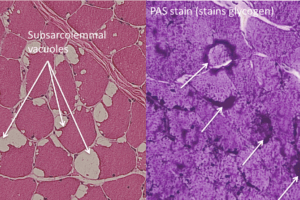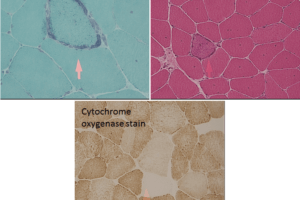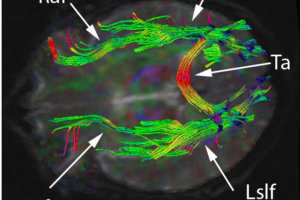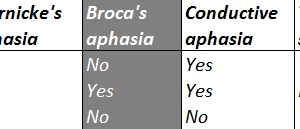Cefepime is a cephalosporin antibiotic typically used when broad spectrum coverage including Pseudomonas aerigonsa is needed. However, it can produce cefepime neurotoxicity with encephalopathy, myoclonus, reversible aphasia, and/or convulsive or subclinical seizures. Read more »
Juvenile myoclonic epilepsy (JME) is one of the most common generalized epilepsy syndromes and typically presents in the teen years. Like absence epilepsy, it is considered a primary generalized epilepsy, rather than... Read more »
Whether you’re taking the initial certification or a maintenance of certification neurology exam there are several good ways to prepare. Three complementary routes are available. 1. Lecture-based course. These can be either... Read more »
Absence epilepsy is a type of primary generalized epilepsy in children, and usually presents as staring spells. Read more »
Carnitine palmitoyltransferase II (CPT) deficiency is the most common inherited lipid-metabolism disorder in skeletal muscle. Read more »

McArdle disease is a glycogen storage disease in which the enzyme muscle myophosphorylase is deficient. It is commonly known as glycogen storage disease V. Read more »

Mitochondrial myopathy can be caused by metabolic abnormalities related to mutations in the mitochondrial genome or mutations in the somatic genome that produce abnormal mitochondrial proteins. Read more »
This is a 1-hour small-group tutoring session for neuro topics that are covered on USMLE step 1. There can be up to 5 students per session, and the session will be conducted... Read more »

Conductive aphasia is defined as the inability to repeat a spoken phrase, even when comprehension is intact and speech production is otherwise normal. Read more »

Patients with expressive aphasia have difficultly speaking fluently, although they can understand what other people say when they are spoken to. Read more »
